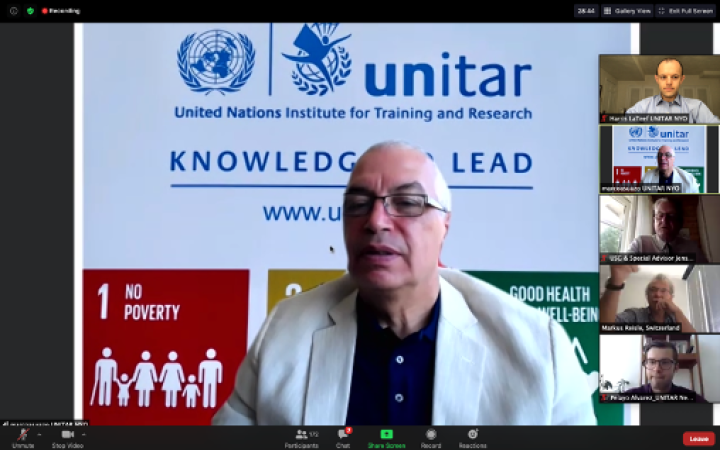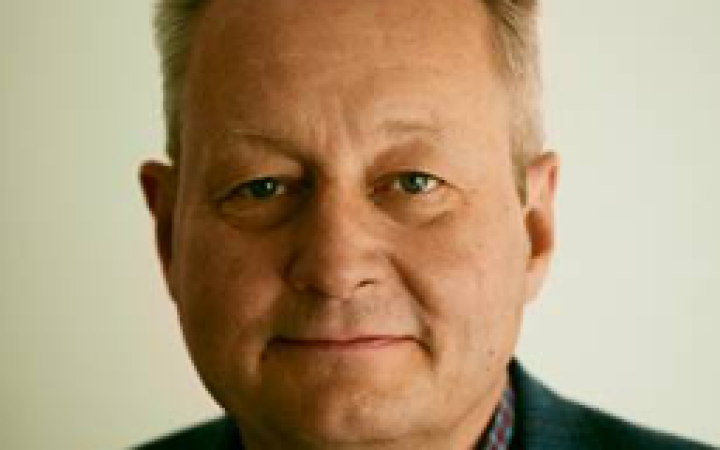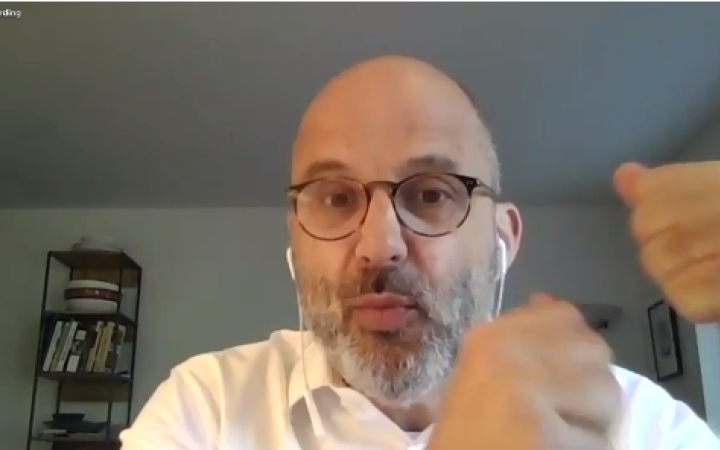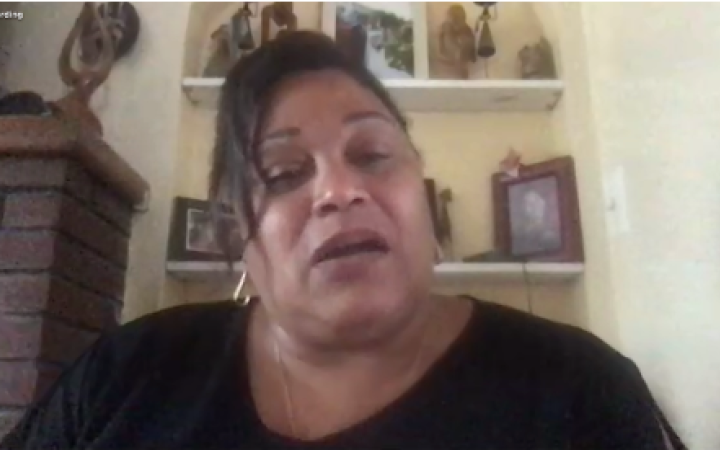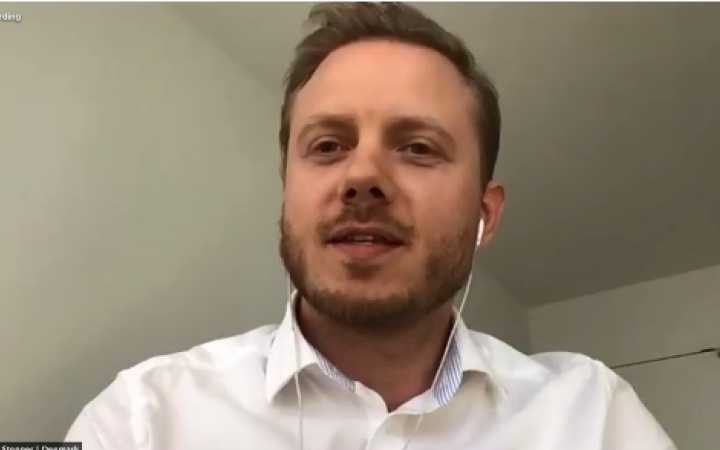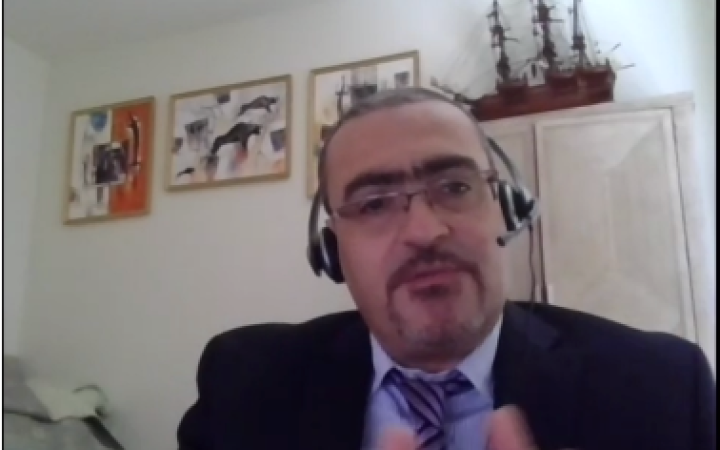The session began with welcome remarks delivered by Mr. Marco Suazo, the head of office of the UNITAR New York office.
He gave the floor to Mr. Jens Wandel, the UN Under Secretary-General, Special Advisor to the Secretary-General on Reform who was also the moderator of the second module. Mr Wandel provided an overview on all streams the UN reforms including reflection on the current situation and the way ahead.
Mr. Wandel explained that the UN reforms are built on three streams: development, peace and security and management. These three streams are interlinked and success of one is dependent upon the others. The reforms are solution-driven, and address fragmentation, especially in the peace and security architecture. The reform process has already achieved two milestones: organizational restructuring in January 2019, and ECOSOC welcoming the UN development system repositioning. Current focus is on operational integration – a milestone to establish common business operations and common premises. Mr. Wandel provided an in-depth explanation on the benefits on the reforms; emphasizing that one the key benefits of UN reforms stems from common business operations. Mr. Wandel reflected also on risks such as available resources and ways – both in substance and on effectiveness - that will make the UN reform continue to deepen and deliver benefits.
The second speaker, Mr. Robert Piper, the Assistant Secretary-General, and Director, UN Development Cooperation Office, elaborated on key elements of the UNDS reform, including achieved and expected changes. Mr. Piper started with a summary on the achievements since and the legacy of the 2016 QCPR. The 2016 QCPR was built with the implementation of the 2030 Agenda in mind; requesting the UN development system to be more “strategic, accountable, transparent, collaborative, effective, efficient and result-oriented.” Mr. Piper offered a detailed overview of the current situation of the UN development system reform. Mr. Piper described the reform efforts to date, touching on the Resident Coordinator system, the new UN Sustainable Development Cooperation Frameworks, the Mutual Accountability Framework, Funding Compact, Joint SDG Fund, the regional review and review of multi-country offices, as well as the system-wide evaluation and the system-wide strategic document. After giving a trajectory of successes and signals of positive change he highlighted out how crucial the newly established RC system is for delivering the appropriate response to the current COVID-19 pandemic. Mr. Piper’s punctilious intervention helped participants understand the role of the resident coordinator and how they directly support Member States.
Ms. Marguerite Sebastian from the Permanent Mission of the Republic of Belize, and Mr. Casper Stenger, Counsellor of the Permanent Mission of Denmark shared their experience and views on the QCPR and efforts to reposition the UN development system. Ms Sebastian recalled her experience during the 2016 QCPR, noting the context of shifting from the MDGs to the SDGs at that time. Ms Sebastian explained that delegates aimed to assess the strengthens and weaknesses of the system in order to then consider how to reposition the system and make it ‘fit for purpose’. There were a number of processes that supported this, including the ECOSOC Dialogue on the longer-term positioning of the UN development system. The system however is complex and it was difficult to dissect so a bottom-up approach to change was adopted. This ultimately lead to changes to the Resident Coordinator system, the Cooperation Framework and the regional review and review of multi-country offices. The underpinning intent was to limit duplication and inefficiencies, and move the system away from the siloed approach during the MDG era to the universal, integrated nature of the SDGs.
Mr. Stenger further expanded on the lessons learned from the 2016 QCPR. Mr Stenger noted that in 2016, the three building blocks that he used to prepare for consultations on the QCPR were the ECOSOC Dialogue, UNDG (now UNSDG) guidance, and the Secretary-General’s report on the QCPR with recommendations. He offered suggestions to guarantee the success of 2020 QCPR process: start learning about the substantive areas of the QCPR as early as possible, and start reaching out to other groups as soon as possible to understand delegates and Member States’ expectations for the QCPR.
Mr. Ramiz Alakbarov, Deputy Executive Director of the United Nations Population Fund (UNFPA) reflected on the impact of the UN reform for UN agencies, funds and programmes and business models for country support. Using data generated from a UNFPA survey on UN development system reform, he offered unique insight on how Resident Coordinators are engaging with UN Country Teams, the newly introduced UN Sustainable Development Cooperation Frameworks, joint funding and common business operations. He mentioned that to carry forward the reform, UN coordination and support to staff needs to be strengthened. He formulated three lessons learned from the data: focus on high impact intervention, enable tailored solutions, and focus on stronger coordination and partnership.
Following interventions from each of the panelists, the module moved on to a virtual ‘Davos-Style’ Q&A session. Mr. Wandel moderated the Q&A session and invited the panelists to answer the questions and address the queries of delegates coming from a wide range of Member States. Questions were raised on COVID-19’s influence on the QCPR’s negotiation process, how Resident Coordinators can promote technological inclusion in programme countries, and how core funding is used to report to emergency situations. A wide range of topics were discussed including but not limited to the role of technology in bridging inequality gaps, and the Global Sustainable Development Report (GSDR) and its application in programme countries.
The module ended with a closing remark from Mr. Markus Reisle, Counselor from the Permanent Mission of Switzerland. He reframed the session with the call to everyone “to connect what matters with things that work and share it this knowledge with others.” He further invited the participants to the third module on July 2, 2020.


